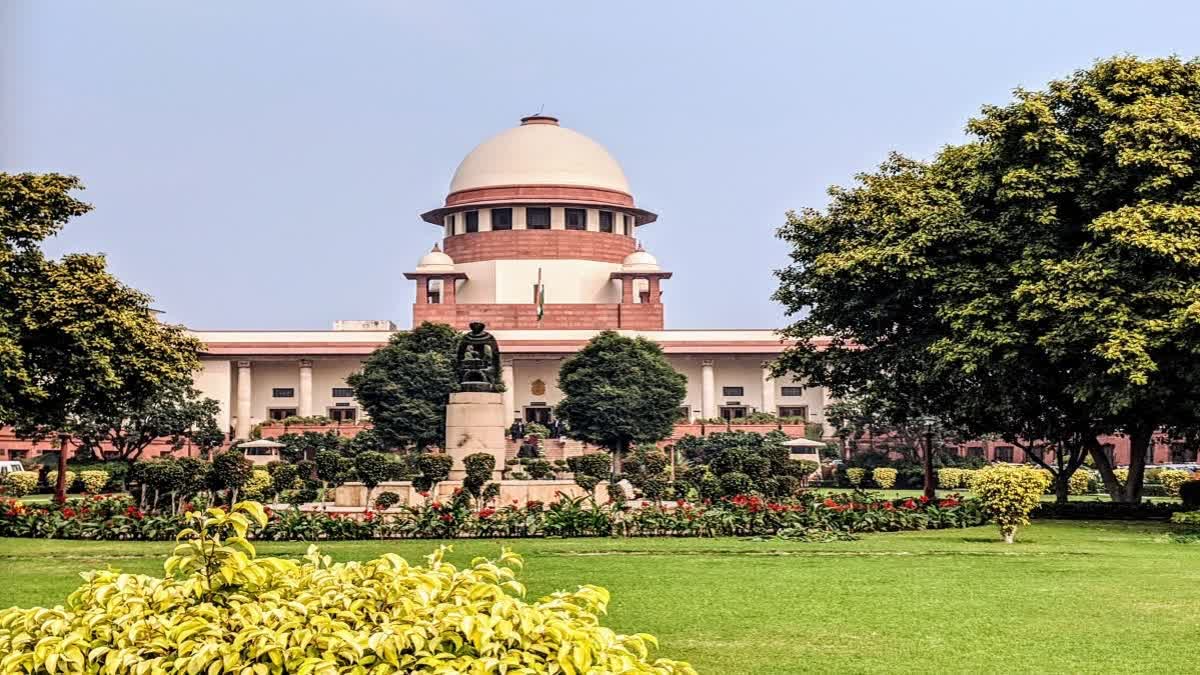New Delhi: The Supreme Court on Tuesday said that services rendered by lawyers to their clients are sui generis and cannot be called in question under the Consumer Protection (CP) Act, 1986. The apex court stressed that a complaint alleging “deficiency in service” against advocates' practising legal profession would not be maintainable under the CP Act.
A bench comprising Justices Bela M Trivedi and Pankaj Mithal said that the “legal profession cannot be equated with any other traditional professions”, and “professionals could not be called businessmen or traders, nor clients or patients be called consumers”. The bench delivered two separate, but concurring judgments in the matter.
The bench pointed out that the CP Act was enacted to provide for better protection of the interests of the consumers against their exploitation by the traders and manufacturers of consumer goods.
The bench held that legal representation for a fee cannot be classified as a “service” under the CP Act and the arrangement between a client and his lawyer is like a “contract of personal service”, and lawyers cannot be dragged to consumer court over alleged deficiency in service.
The bench said there was not a whisper in the statement of objects and reasons either of the CP Act, 1986 or 2019, to include the professions or the services provided by professionals like advocates and doctors within the purview of the Act. The bench stressed that it is well recognised in the catena of decisions that the legal profession cannot be equated with any other traditional profession. It is not commercial, but is essentially a service-oriented, noble profession.
“The advocates are expected to be fearless and independent for protecting the rights of citizens for upholding the rule of law and also for protecting the independence of the judiciary”, said the bench, adding that people repose immense faith in the judiciary, and the bar being an integral part of the judicial system.
“Therefore, having regard to the role, status and duties of the advocates as the professionals, we think that the legal profession is sui generis i.e; unique in nature and cannot be compared with any other profession”, said Justice Trivedi, in her judgment.
However, Justice Trivedi clarified that at this juncture we do not propose to say that the professionals could not be sued or held liable for their alleged misconduct or tortious or criminal acts. The bench said that in the process of overall depletion and erosion of ethical values and degradation of professional ethics, instances of professional misconduct are also on the rise.
“Undoubtedly, no professional either legal, medical or any other professional enjoys any immunity from being sued or from being held liable for his professional or otherwise misconduct or other misdeeds causing legal, monetary or other injuries to his clients or the persons hiring or availing his services”, said the bench.
It added that professionals who are governed by their respective councils like bar councils or medical councils also would not absolve them from their civil or criminal liability arising out of their professional misconduct or negligence. “We think that neither the professions nor the professionals were ever intended to be brought within the purview of the CP Act either of 1986 or 2019”, said the bench.
The bench made it clear that it is a very well-accepted proposition of the fact that professionals could not be called businessmen or traders, nor clients or patients be called consumers. “A professional cannot be treated equally or at par with a businessman or a trader or a service provider of products or goods as contemplated in the CP Act”, said the bench.
“We are therefore of the considered opinion that the very purpose and object of the CP Act 1986 as re-enacted in 2019 was to protect the consumers from unfair trade practices and unethical business practices only. There is nothing on record to suggest that the Legislature ever intended to include the professions or the professionals within the purview of the Act”, said the bench.
The bench said if the services provided by all the professionals are also brought within the purview of the Act, there would be floodgates of litigations and the very object of providing timely and effective settlement of consumers’ disputes would be frustrated. Justice Mithal said in India the services of professionals, more particularly that of lawyers, have to be excluded from consumer protection law under the intention expressed in enacting the same.
He said the Consumer Protection Act, 1999, enacted by the Parliament of Malaysia vide Section 2 (2)(e) specifically provides that the said act shall not apply, inter alia, to services provided by professionals, who are regulated by any law and states in the USA, also exempt legal professionals from consumer laws.
“The Australian High Court, the highest court of the land in Australia, in D'Orta-Ekenaike vs Victoria Legal Aid, has emphatically echoed the need for such exemption and its direct bearing on the justice delivery system”, said Justice Mithal. The bench said that the court has also opined that the judgment in Indian Medical Association v VP Shantna, which held that doctors can be held liable under the Consumer Protection Act, deserves to be revisited.
The apex court set aside a 2007 judgment by the Consumer Commission, which held that advocates do come under the purview of the Act and can be dragged to a consumer court by their clients for deficiency in service.
Read More



